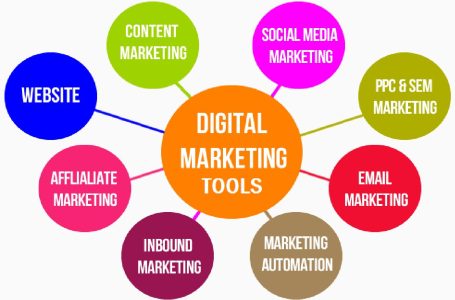A business website is an online platform created and maintained by a company or organization to establish a digital presence and interact with customers, clients, partners, and the public.
Especially in these moments, many may consider taking their business to the Internet. Before building your website, it’s important to define what you want your website to achieve. What are your goals? What is the purpose of your website? Is it to sell products, generate leads, provide information, or something else?
Today in this article, Techsupportreviews will explain what a web page is and what it is for. What fundamental principles must you consider when creating it, and how to create a blog on the web and other publications so that this digital space can be used to the max?
What is the business website?

The web page, or, instead, the Website (includes one or more web pages), is a digital document with text and multimedia content, which network users can access through different search engines, such as Google.
In this, companies show all the information and content they believe is convenient for their target audience. Depending on what you want to display and the type of business, the web page can have different designs associated with its variety:
Static: It is one of the most basic since it only includes the content of an informative and advertising nature that does not need to be changed over time. For example, contact information, presentation of the company, portfolio of services and graphics, photos or institutional videos related to this type of information.
These websites are frequently used by companies whose whole source of sales is face-to-face and customer-facing, for example, medical offices, aesthetics, and veterinary services.
Dynamics: These integrate the new technologies 2.0 and 3.0, standing out for making interaction with users possible and creating a database of visitors. These include arduous Back End work for integrating multiple functionalities and multimedia resources.
You can include several pages in addition to the Home (home page) within dynamic websites. Some of the ones that can be included are the e-Commerce or online store, blog, forums, tutorials, and portfolio of services.
Business web pages can be static or dynamic, depending on whether or not you require interaction with users.
Why should you have a business website?
The Internet reach in the world already exceeds 50% of the world population, as reported by the statistics of the World Data Bank. In Guatemala, by 2017, 65% of the population had access to the Internet, and this figure is increasing.
This scope lets us see that having a website opens up a world of possibilities for both brand positioning and visibility of your business. As well as for the development of your portfolio and customer acquisition.
On the other hand, we have the excellent reputation and credibility your company can gain by having a website.
According to a study by Nielsen, brand websites are the second most trusted advertising format, second only to a recommendation from a friend or family member. This, in turn, explains why through your Website, you will significantly influence your target audience’s purchase decision.

What is the Website for?
Now, those specific utilities you get with a web page depend on its type (static or dynamic) and the functionalities you integrate. Some of those uses are:
- Publicize your business’s philosophy, mission, vision, and products or services.
- Publish valuable content that connects with your customers’ needs and helps you gain reputation and authority in the market.
- Positioning of the brand in the mind of the consumer.
- Earn reputation and credibility.
- Facilitate sales work by capturing better profiled Leads (visitors who give you their data).
- Increase sales through the integration of e-Commerce on your Website.
- Grow your business by achieving marketing and sales objectives.
- Establish solid and positive relationships with your customers through interaction by integrating social networks on the Website, online chats, and forms.
Basic principles for your Website?
Website Benefits
To obtain these utilities and advantages of websites, there are some principles to take into account in their creation:
Design
It depends on the design of the Website that you find how to sell online and achieve your marketing objectives. The basic principles that you must have are:
- Own domain, hosting, and SSL certificate (security).
-
It must develop in a CMS (Content Management System) that is self-managing and dynamic.
- With Responsive design, your Website can be seen from any mobile device.
- Intuitive and passionate about delivering the best user experience. This also includes that you need to be agile.
- You are personalized, constantly reflecting the identity of your brand or company. In addition, to connect with the taste and needs of your client or target audience.
SEO
-
SEO is a series of techniques for your site’s organic positioning, which must be considered both at the time of its creation and in the publications made over time.
- SEO will help, in a large percentage, how sell online and create a blog on the web.
- And also, in general, highlight everything you publish on your site to the ideal client.
- Through this, you can locate your Website in the first results of search engines, such as Google, which is one of the most used.
- This is achieved by integrating keywords and other parameters followed.
- Both in the content published on the blog and when designing the Website.
- For example, in the choice of the words of the URL (address of your Website).
- The texts of the Home, eCommerce, the photos, and other elements.
- To receive a free check in which we can make an SEO diagnosis on your Website or tell you how it can be optimized from its creation, you can contact us at Web Marketing.
How to create a web page?
It is necessary to have professional development so that the investment is long-term. In addition to this specialized accompaniment, you will need the following:
- Brand identity guide. Some marketing agencies can guide you on this if you do not have it.
- CMS on which the Website will develop.
- Obtain hosting, domain, and SSL certificate.
- A strategic plan in which the objectives you want to achieve with your web page are set.
-
So that the design and functionalities to integrate into the site are better defined.
- Designate users responsible for the administration of the CMS and site content.
- Photographs, videos, texts, and all audiovisual and textual resources to integrate into the site.
- Data and all inventory information for creating e-Commerce on the Website (if required).
Conclusion
The business website becomes an essential digital resource for companies of all types and sizes due to the visibility, reputation, and sales opportunity it represents.





